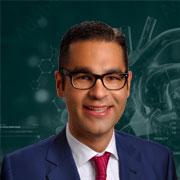In this discussion, Philipp Lurz and Felix Mahfoud explore the evolving role of interventional therapies in the management of heart failure. While pharmacological treatment remains fundamental, they emphasize the growing clinical need for device therapy in heart failure to improve patient outcomes.
They point out that, despite advances in drug therapies that reduce symptoms, morbidity, and mortality in patients with both reduced and preserved ejection fraction, event rates remain high.
In this context, there is clear room for improvement, particularly through interventional approaches such as inter-atrial shunts, valve interventions targeting mitral or tricuspid regurgitation, neuromodulation including renal and hepatic denervation, and baroreflex stimulation therapies. These interventions are best used as adjunctive strategies, aiming to enhance the effectiveness of medical therapy while improving patients’ quality of life and long-term outcomes.
As device therapy in heart failure continues to expand, Philipp Lurz and Felix Mahfoud underscore the importance of rigorous clinical trials to validate the true efficacy of these techniques, and caution against overestimating their benefits without strong supporting evidence.




